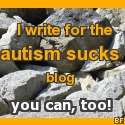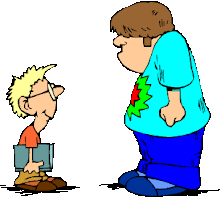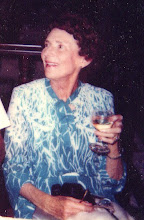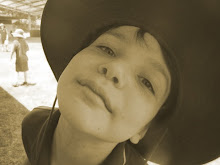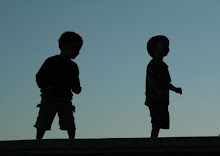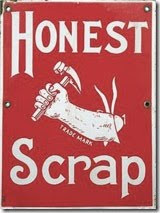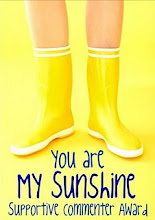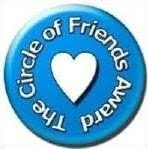Monday, July 27, 2009
The great vaccination debate...
Eye of the Needle - Amanda Wyatt
And then, suddenly, the room was quiet. The team of doctors and nurses who’d clustered around Dana McCaffery’s bed all day were now switching off her life support machines and padding out of the intensive care room at Brisbane’s Mater Children’s hospital. Toni and DavidMcCaffery somehow found the strength to move towards their precious four-week-old daughter. When Dana had gone into cardiac arrest, Toni, 34, had been in a sitting room with her mum relaying the good news: her baby’s ten hour,double blood transfusion – the medics’desperate attempt to expel some of the toxin produced by the pertussis bacteria – finally appeared to be working. Dana was going to pull through. “It’s going to be okay,’’ Toni had said as she collapsed into a chair. But then David, who was standing by his daughter’s bed, screamed …
Three months on, Toni sits at the kitchen table in her family’s home at Lennox Head on the northern NSW coast, still hardly able to believe the story she is telling is her own. Her six-year-old son James is at school, daughter Aisling, 4, is watching TV, and David, 46, is due home from his primary school teaching job.“I heard David scream," Toni says, “then Dana went into cardiac arrest. We were calling out, pleading with her to stay with us. We had to watch the whole countdown from ten minutes until they told us: ‘There’s nothing more we can do.’ ’’ She stands up to search for tissues.
“I think I just went into shock. At no point had we expected she would die. And Dana … someone got me a chair.’’ Huge sobs overwhelm her. “I remember sitting down and she was put in my arms. She was blue.’’
In the end, death was perhaps a blessing for Dana. She was the latest Australian victim of pertussis, known more commonly as whooping cough. The disease had been diagnosed four days earlier, and its assault was swift. Dana had her first major coughing spasm within tenminutes of arriving at Lismore Base Hospital in March – the sharp, barking cough continuing for more than a minute until she went blue in the face and passed out. She was eventually airlifted to Brisbane, where the toxin produced by the disease – notoriously resistant to medication –went on to attack her heart, circulatory system and kidneys, and quite possibly her brain.
As Toni and David sat with their baby’s body in the Mater, further news compounded their shock. They learned that Australia was in the grip of a whooping cough epidemic, that until babies had completed their primary course of pertussis vaccinations at six months, they were at greatest risk of dying from the highly infectious disease (one in 200 of the babies in that age group who contract it die from pneumonia or brain damage); that the NorthernRivers district of NSW where they lived had one of the lowest immunisation rates in the country; that all adults in Dana’s life should ideally have had a pertussis booster shot as a further link in the chain of protection.If she had been aware of the dangers, Toni would have kept Dana inside more in those first few weeks of her life; she would not have to Aisling’s preschool, housed in a childcare centre that authorities later confirmed had sixc ases of whooping cough. The McCafferys would have got their booster shots and insisted on the same for their extended family and friends.
Then there was the Lismore Base Hospital where Dana was born: they shuddered to think how many whooping cough carriers she might have come in contact with there.They made a pact. They would ensure their baby had not died in vain. They would go public to warn other parents, drawing on Toni’s 13 years of experience in marketing and communications to lobby the government for advertising campaigns ramming home the need for all children and adults to get vaccinated.
But it turned out the pertussis epidemicwasn’t the only thing the McCafferys would have to fight. They had waded into the contentious and increasingly caustic debate over the rights and wrongs of childhood immunisation.
HEALTH AUTHORITIES ARE NOT SURPRISED at the current spike in whooping cough rates– the disease is notorious for cyclical outbreaks every three to four years – but the size and speed of the epidemic is causing alarm. In 2005, the height of the previous pertussis spike, there were more than 11,000 notifications nationally. The first warning bells sounded last year when the number of cases passed 14,500, but the worst was yet to come. The number of cases diagnosed in the first six months of this year eclipsed the 2008 total and is showing no signs of abating. As of last week the tally for 2009 stood at 15,302 cases nationally, 2778 in Queensland. (The state total for 2008 was 2276.) In NSW, 48 per cent of babies aged under six months infected with the disease this year were admitted to hospital, a figure believed to be reflected nationally.
Dana McCaffery is one of three babies who later died.“We should not," said Dr Neil Hearnden of the Royal Australian College of General Practitioners in an interview last month, “have deaths from whooping cough in this day and age."Pertussis is not the only potentially fatal childhood disease that could come back. In March there was an outbreak of more than 20 cases of measles at a school at Beerwah in the Sunshine Coast hinterland. Dr Michael Nissen, director of infectious diseases at Brisbane’s Royal Children’s Hospital, told Qweekend he fearsa measles epidemic if that disease takes hold in communities with low vaccination rates.Vaccination programs have seen a reduction in illness and deaths from multiple childhood diseases since the cowpox vaccine was first used against a smallpox outbreak in Australia in the early 1800s. Among the greatest success stories are polio (which killed more than 1000Australians from 1944 to 1954 and has now been all but eradicated in this country) and Hib, orhaemophilus influenzae (there has been a 95 per cent reduction in cases in children under five since the vaccine became widely used in Australia in 1993). The number of cases of measles, meningococcal C and invasive pneumococcal has also fallen sharply.Today, parents are urged to vaccinate their children according to a schedule that stretches from birth to Year 10 and is designed to offer protection from 14 childhood diseases (15 if your child is Aboriginal or Torres Strait Islander) including meningococcal C, pneumococcal,diphtheria, tetanus, pertussis, measles, mumps,rubella and chickenpox. Most doctors will bulkbill vaccination appointments and councils also offer free vaccination in many parts of Australia.Central to the success of the program is the concept of “herd immunity’’, which relies on a high percentage of children and adults (typically 95 per cent) being vaccinated to reduce the likelihood of diseases spreading if they are introduced. The theory goes that those who can’t be protected – such as babies too young to be fully vaccinated, children with compromised immune systems and the small percentage of children for whom vaccines fail –are still safe. But while childhood immunisation rates remain high and steady in most areas of Australia, hovering at about 92 per cent, strong pockets of resistance exist.
According to federal government figures, in the Northern Rivers district of NSW immunisation rates are about 84 per cent, with Byron Bay as low as 64 percent up to the age of two; the Beerwah measles outbreak was blamed on that area’s notoriouslylow immunisation rate (88.2 per cent on the Sunshine Coast for 12-15-month-olds). The Tablelands district in far north Queensland is also shaping as an area of concern: on latest estimates, only 84.5 per cent of 12-15-month-oldchildren living there were fully immunised. Parents who refuse to immunise their children because of concerns about vaccines’safety are known as “conscientious objectors’’. They account for just two to three per cent ofthe population but of concern are the additional estimated 15 per cent of parents who are actively seeking more information on the safety of vaccines. It is this group that most worries infectious disease experts – if some become conscientious objectors, there is a very real danger that herd immunity could be lost.
There is a precedent for this. In 1998, after the releaseof a report in Britain known as the Wakefield study that claimed a link between autism and the measles, mumps and rubella (MMR)vaccine, rates of vaccination plummeted in some parts of the UK. While the study was later debunked and ten of the 13 authors published a statement retracting the paper’s interpretation, the damage was done. Europe is now seeing severe complications from measles for the first time in decades, according to Nissen.
The “questioners’’ comprise the strategically important “swinging voter’’ group, says Dr JulieLeask, senior research fellow at the National Centre for Immunisation Research and Surveillance of Vaccine Preventable Disease.They tend to be tertiary-educated, older mothers who are “very intentional and proactive about every aspect of their child’s development’’, and any major controversy about vaccines could erode their confidence Queensland Health’s senior director of communicable diseases, Dr Christine Selvey,agrees: “There’s nothing we can do to move the conscientious objectors … but it’s the people in the middle who are the concern, the people who are sort of questioning and wavering.’’ She shies away from the term “selfish’’ to describe parents who opt out but they are, she says,“relying on the goodwill of everyone else’’.“They say, ‘My kid wasn’t vaccinated and they are healthy and they’ve never had any of these diseases so they don’t need vaccines.’ That isn’t a logical argument. The reason why their kid didn’t get infected was that everybody around them had done the right thing.’’
The local medical community doesn’t support calls like those in Britain for unvaccinated children to be banned from schools or childcare centres. Neil Hearnden says that instead, “We must protect these children from their parents.Probably through their own fears and insecurities, [they] have made these decisions for their children and we must have things in place to protect them. That is a matter of being aware of their unvaccinated status and then excluding them as soon as there is an outbreak of those diseases.’’
IT'S STANDING ROOM ONLY AT THE AUSTRALIAN Vaccination Network’s “Naturally Healthy Children’’ seminar at an upmarket conference centre in Buderim, an affluent pocket of Sunshine Coast suburbia. The privately funded organisation has more than 3500 members, and today the room is dotted with women in their twenties and thirties, many nursing babies. Those who aren’t members have paid $37 to hear this afternoon’s lectures focusing on non-toxic approaches to childhood health, and they now look expectantly to the final speaker, AVN president Meryl Dorey. Dorey, 51, has dedicated herself full-time to the Bangalow-based lobby group since it began in 1994.
“We are labelled as the antivaccination group but that’s simply not true,’’she had entreated when I contacted her for this story. “We don’t believe we have the right to tell people whether or not to vaccinate, but neither does the government.’ However, it only takes a few minutes of listening to Dorey’s presentation to realise she is no fence-sitter. She claims vaccines “contain toxic ingredients”; “have never been scientifically tested”; “do not provide guaranteed immunity from infectious disease’’. She tells the audience of cases reported to the AVN of babies who cried for five days straight after vaccination and then died. An AVN book handed out at the seminar contains chilling anecdotes from parents whose children died or were left with mysterious illnesses following routine inoculations. (Doreyagreed to try to put Qweekend in touch with some of them for this story but nothing eventuated.) Dorey began researching vaccination two decades ago after her baby son had adverse reactions to his jabs; she stopped vaccinatinghim altogether after he was hospitalised with gastroenteritis following his MMR vaccine at18 months and “started to develop autistic tendencies’’. Dorey downplays the seriousnessof the diseases vaccines are meant to prevent. n an article titled Pertussis: The Fear Factor, she writes that when her own children came down with whooping cough, it was a “storm in a teacup’’resolved with homeopathic remedies.The McCafferys have it in writing from theNSW North Coast Director of Public Health that three days after Dana’s death, Dorey called him and claimed he had “misled the public’’ in attributing the baby’s death to pertussis in a media statement, despite lab confirmation of the diagnosis. Dorey now tells the Buderim audience of large-scale conspiracies, saying doctors are paid salesmen for vaccine products and rarely report adverse reactions; that stories in the mainstream media on drugs are “word for word [from] the press release the pharmaceutical company put out’’. She rejects that the findings of theWakefield autism report have been overturned.“Make no mistake,’’ she says, “there is a very,very strong effort on the part of the government and on the part of the mainstream medical community to suppress any information that will lead parents to believe that vaccinations are less than perfectly safe or perfectly effective …You have a responsibility to go out and talk to people. Not to say ‘you’re a fool if you vaccinate’[but to say] ‘hey, I just went to this seminar and I got some information on vaccination and …I think it would open your eyes a little bit. Are you brave enough to look at it? Do you care about your child enough to look at it?’ ”
The Australian Skeptics’ Dr Rachael Dunlop, a working scientist who volunteers four hours a week to investigate the AVN’s claims online, vacillates between being bemused and horrified at these tactics. “The AVN will tell you there’s mercury in childhood vaccines,’’she says. “There is no mercury in childhoodvaccines [but] if you are a parent trying to decide whether to give your child the [MMR]vaccine and come across websites that say it’s got mercury in it and it will give your child autism, of course you will be scared and therefore won’t want to go ahead and do it.”
AFTER NURSE CECILY JOHNOSN, 55, LOST HER12-year-old daughter Laine to a rare complication from measles in 1995, she gatecrashed AVN conferences in her former home state of Western Australia and then in northern NSW. Laine had contracted measles at ten-and-a-half months before she could receive the full schedule of measles vaccines; she recovered but at seven was diagnosed with subacute schlerosingpanencephalitis (SSPE), a fatal complication affecting one in 100,000 children who contract measles. She went blind within two weeks of diagnosis and eventually couldn’t talk or move because of the damage the virus had done to her brain. It took her five years to die. Johnson’s attendance at the conferences was part information-gathering, part ambush. She’d take before-and-after photographs of Laine and other children with SSPE with her and when the sessions opened up to questions, jumped to her feet and flashed them around.“People think measles is innocuous but it is not,’’ she says. “I had a photo taken of my daughter in her coffin and I took it to AVN conferences and said, ‘This is measles, man.’ Another time I took her ashes. I didn’t go to the meetings to have a go at Meryl, it was to reach out to parents because I know how convincing it can be sitting there and listening [to the AVN].They say, ‘It’s just one child’ when they talk about fatalities from these diseases, but that’s my child. These diseases are real and the kids who die from these diseases are real people.”Given what they agree is at stake, why do the medical community and governments leave it to individuals and the Australian Skeptics to hit back aggressively against the AVN? I read out to Nissen a document handed out at the seminar that lists ten reasons “why parents question vaccination’’. He dismisses it as largely inaccurate. But isn’t there a concern that first time, cautious parents may be swayed? “I agree entirely. I have friends who are extremely well educated and this type of stuff really plays on their mind.’’ But he won’t buy into a tit-for-tat. Nissen says people “want to hear good, sound logical advice that’s based on scientific evidence’’ and will make up their own minds.Hearnden points to the fact vaccinations are supported by the overwhelming majority of parents. That’s not enough for the McCafferys.Central to their campaign is a call for the federal government to more actively educate parents about the importance of vaccination. A National Immunisation Strategy has been commissioned in a bid to boost immunisation rates, and a separate NSW review is analysing any deficiencies in warning systems at the time of Dana’s death. NSW, the ACT, NT and Victoria now offer free pertussis vaccinations to adults who care for young children. There is also a raft of information on the internet, including a lengthy federal government document titled Myths and Realities: Responding to arguments against immunisation, but parents with lingering questions say they find existing resources either inadequate or too technical.
Brisbane mother Andrea Dawson, 37,converted from a questioner to a conscientious objector ten years ago and says she took a “considered approach’’ when opting out of scheduled vaccinations for her son, 11, and daughter, 7. The communications professional and former journalist’s suspicions were aroused when her son developed asthma-like symptomsafter his third inoculation at six months. She said the emergence of eczema in her baby daughter indicated a compromised immune system and she didn’t want to “play with it’’by adding vaccinations.Dawson talked at length to her GP andtrawled for information but her growing misgivings were not assuaged. The one-size fits-all inoculation program was at odds with what she saw as a growing body of evidence that humans have distinctly individual immune systems. While she’s confident about her decision, it doesn’t mean the backlash hasn’t stung. “I’ve had doctors treat me poorly for saying that I haven’t vaccinated my children,”she says, and knows there are “people who will suggest that what I’m doing is reckless’’.Dawson says that when her daughter becomes eligible in Grade 8 for the Gardasil cervical cancer vaccine, it will be another hard decision. In the meantime it would be great, she implores, if as a community “we had more conversations about how [vaccination] works,how it doesn’t work, how the schedule could be safer. It needs to be investigated in a considered instead of a sensational way.’’
For Nissen, it comes down to a comparison of risks. Vaccinate children against a disease and risk the extremely rare chance of a serious adverse reaction, or don’t get them vaccinated and gamble with much greater odds of serious health problems if they contract it. In his 21-year career he has never known a child to die or suffer brain damage as a result of a scheduled vaccine. (In the latest published statisticson adverse events following immunisation, covering 2000-2007, two deaths were reported, but government sources say they were both elderly people who died after receiving the’flu vaccine; no direct link with the vaccine was established.)The reality is, says Nissen, that unvaccinatedchildren do suffer serious complications or die, and he’s seen the emotional fallout for parents. “They are totally devastated because they feel they’ve made a grave error in judgement and haven’t protected their child.The guilt they feel stays with them for life.’’
But the issue of responsibility extends beyond parenting. Hearnden accuses the federal government of dropping the ball on immunisation by not increasing the financial incentives to parents to vaccinate (an approximate$260 payment to parents who had correctly vaccinated by the time their child was 18months was recently split into part payments at 18 months and four years, he says, while an $18.50 payment to GPs for each vaccination encounter was scrapped), and by failing to include adult booster shots for whooping cough in the immunisation schedule. He says it is unacceptable that Queensland has not followed the lead of other states and made adult booster shots for pertussis free to parents of newborns, adding that legislation to force healthcare workers to be vaccinated against all communicable illnesses should be introduced as a matter of urgency.“We’ve got this attitude at the moment that [the spectre of childhood diseases] has been fixed,” Hearnden says. “It will never be fixed. It always has to have 100 per cent commitment from the federal and state bodies and at the moment we are seeing a dilution in that, and that is harming our ability to deal with these radical elements.’’
BACK AT LENNOX HEAD, THE CYBERSPACE debate on vaccination is becoming unbearablefor the McCafferys. David has warned Toni not to read the more toxic blogs but she finds them hard to ignore. She sometimes Googles Dana’s name and finds entries on blogs that perpetuate false rumours that she was premature; that she was sick from birth; that her parents took too long to seek medical treatment. Upsetting letters containing anti-vaccination paraphernalia have been posted to their home, emails sent to a website they have set up in Dana’s name in a bid to get the message out about whooping cough.Toni closes the folder of papers on her kitchen table. Most of the time she’s strong. But waging a war against callous opponents is taking its toll.Tears that have been pooling in her eyes fall on to her cheeks. “I get very angry, very distressed,’’she says. “Dave will say ‘don’t look at it’, but I’ll say, ‘They are talking about my baby.’ ”Pictures of Dana are stuck to the fridge behind her. In one, the three-week-old is resting contentedly between David’s knees. In another,Toni nurses Dana over her shoulder, their cheeks touching. It’s Toni’s favourite photograph.She smiles at the memory and wipes away her tears. “We fully anticipated opposition to vaccination,’’ she says quietly, “but we never thought we’d be in a position where we had to prove that pertussis killed Dana.’’ Toni hit back on a recent blog, pleading with people “to leave my beautiful daughter alone and stop this misleading chatter”.“And I plead to other parents,” she wrote,“please do not expose your child to this dangerous disease.”
My response:
They say, “It’s just one child”…
That is easy to say when it is not YOUR child. I cry when I read articles like your “eye of the needle.” My heart breaks when I hear the experiences of the McCaffery family and others. I too lost a child. I lost my son to autism.
At the time of his initial regression (such a lovely term used by medical practitioners, shame it does not convey the depths of the damage or the hell we endure) I had never heard of Wakefield, in fact I was truly ignorant of autism spectrum disorder. To me, the term autism related to Dustin Hoffman in Rainman, I had never encountered it personally in my life. I was a mum of two, completely pro-vaccination, as was my science degree husband, fully basing the care of my beautiful sons upon the advice of our GP. We even paid for our sons to be chicken pox vaccinated in the early days before it was on the schedule. Therefore, when my first-born changed with the MMR vaccination at nearly three years of age, we had delayed it due to family illness, I believed the doctors who told us it was co-incidence that his signs of ASD appeared. That this was the age ASD reared it's ugly head. And continued to immunise on his recommendation.
Then came his five-year-old needles, and his second MMR. The impact was far greater, and incredibly terrifying. He had a rage attack worthy of the role Linda Blair played in the Exorcist, tried to impale his forehead into the bathroom tiles of his kindergarten, had superhuman strength, and even scarier, lost a thirty minute window of time. And again, regressed. I lost more of my little boy that day. But I gained something. I found guilt. Dr Nissen stated in your article, “They are totally devastated because they feel they’ve made a grave error in judgement and haven’t protected their child. The guilt they feel stays with them for life.” This could be me. I am the person who should be protecting my children, yet I failed my son. Now the whole family live with the result of our choices every day. They say, “It’s just one child”… but I now know it is not. I have met many parents whose story is eerily similar to ours. They too have the photos and films of engaging, happy babies and toddlers who undergo a tragic metamorphosis upon vaccination. They too are told, “It’s merely anecdotal, there is no evidence.” We are the evidence. Our eyes witnessed the events as they unfolded. My husband is still a man of science, but he no longer advocates vaccination. He advocates research, and informed decisions, and not blindly following the herd.
There are two sides to every story. This is ours.
The response from the paper and my response to their request:
Dear Karen,
My concern would be the editing more than the publication. Unfortunately I have witnessed how much the whole tone of our story can be altered due to selective editing. I am also hesitant after watching the bias placed against those who choose not to vaccinate on several television programs, including "Sunday Night".
So whilst I am happy for our story to be told, I am afraid I must decline if it is to be edited.
Regards
----- Original Message -----
From: QWeekend
To:
Sent: Tuesday, July 21, 2009 3:37 PM
Subject: RE: Attention: Amanda Watt, eye of the needle article.
Dear
Many thanks for your letter, which I have passed on to Amanda.
I am not sure if you intended it for publication, but if so I would like to consider an edited version for publication on Qweekend's Mailbox page. We have received many letters in response to the story and would like to publish as many as possible, but they will all need editing for the available space.
Please let me know your thoughts on this, and if you agree to your name and suburb being published, as is customary with our letters.
Kindest regards
Karen Milliner Senior Editor Qweekend__________________________________________________
The Courier-Mail GPO Box 130, Brisbane. QLD 4001 41 Campbell Street, Bowen Hills. QLD 4006
I cannot risk the bias they would introduce to our story, or the hornet's nest it could provoke from the local community. Unfortunately, like Salem in the witch hunt period, our culture does not embrace those who buck the system. Sad but true.
Wednesday, July 22, 2009
Jumping at shadows.

Saturday, July 18, 2009
The Midnight Hour
Not quite 10 years old, I don't know where he gets his warped intelligence from. Okay, so I was a weird kid too.
Wednesday, July 8, 2009
This is where it gets serious.

Definition
An obsession is an unwelcome, uncontrollable, and persistent idea, thought, image, or emotion that a person cannot help thinking even though it creates significant distress or anxiety.
Someone is obsessed. With me. I am being slowly suffocated by someone's sick mind and their uncontrollable urge to own me. It didn't seem like a big issue. She has always been a very needy, weak individual, an emotional succubus. One who does not ever listen to your problems, or your needs, but makes it all about her. Bah, no biggie, just take a step back from the friendship for a while, let the emotions cool.
Until yesterday. Yesterday when I found out she had changed hairdressers to mine. Yesterday when I found out she was copying my unusual hairstyle. Yesterday when others FINALLY told me just how warped her feelings about me had become.
It is not okay to be so angry, frustrated and hurt that you lie awake all night constantly thinking about ME. Especially when I have done nothing to you other than put a bit of distance between us.
It is not okay to spend session after session with your psychologist ranting about ME.
It is not okay to follow my every move and claiming you rescued ME from a situation which you made so much worse by your actions, and then being angry with ME for choosing to let go of past issues and allow life to move on. And it is certainly not okay to then jump back into that situation to interfere again! Luckily the third party has worked you out and will not allow it!
You are ill. I am only just coming to the realisation of just how ill this is. And as of today I am taking back the control, taking back the balance of power, and I will be addressing this farce with those closest to you so they can get you help and get you the FUCK out of my life!
Done.
Monday, July 6, 2009
And now for some jokes!

Sherlock Holmes and Dr. Watson went on a camping trip. After a good meal and a bottle of wine they lay down for the night, and went to sleep.
Some hours later, Holmes awoke and nudged his faithful friend awake. “Watson, look up at the sky and tell me what you see.”
Watson replied, “I see millions and millions of stars.”
“What does that tell you?” Holmes questioned.
Watson pondered for a minute. “Astronomically, it tells me that there are millions of galaxies and potentially billions of planets. Astrologically, I observe that Saturn is in Leo. Horologically, I deduce that the time is approximately a quarter past three. Theologically, I can see that God is all powerful and that we are small and insignificant. Meteorologically, I suspect that we will have a beautiful day tomorrow. What does it tell you?”
Holmes was silent for a minute, then spoke. “Watson, you idiot. Someone has stolen our tent.“
Old age and infirmity.

Sunday, July 5, 2009
Those warm and fuzzy feelings.

The early years... Life Consumed by Autism

This could be addictive... though I do have a short attention span!

Saturday, July 4, 2009
And so it begins
But the tragedies and sadness from the last few days have once again shown me how frail life is, and how we must grab our dreams and run with them, for who knows what tomorrow brings.
My Mother once told me "you are too involved in others' lives. You need to take a step back and not care so deeply, for it only leads to pain." For a wonderful, nurtering woman she certainly came out with some doozies. But I am who I am. I do not know if my losses along the way shaped my nature, though by the age the first tragedy hit I would have thought my core traits were already in place.
I remember from a young age feeling wounded by friends, and sometimes even a sense of betrayal when the bitchiness of little girl packs hit. I recall taking it to heart, and running home crying to Mum. Maybe this is why she feels the way she does? I know it breaks my heart when my children falter and fall. But I cannot change this need to enmesh myself in friend's lives, to bond or link myself to them. How can I not when it is what I ask of others?
The loss of my only sibling in my mid-teenage years means I rely on my friends, and in return, would do almost anything to help if they call. I cannot remain a fringe-dweller, inanely making the right noises whilst not truly interacting or listening to their tales. I do freely give my emotions, allow myself to become involved, to try and help if I can, or just listen with an open mind, if that is what they need.
It is also why my heart breaks when bad things happen to good people. There are people you come across on this internet pathway who reach in and grab hold of you. Even if you have not met in the flesh, you can feel how wonderful, and refreshingly nice they are, even over the web. It is why their pain creates a deep sadness inside, though you could walk past them in the street and never recognise one another.
And now, after I have been reminded that life is too short by a tragic loss to one of these wonderful web friends, my blog takes its first, tentative steps into being.
RIP Xavier, for one so little you have left a very big footprint.






